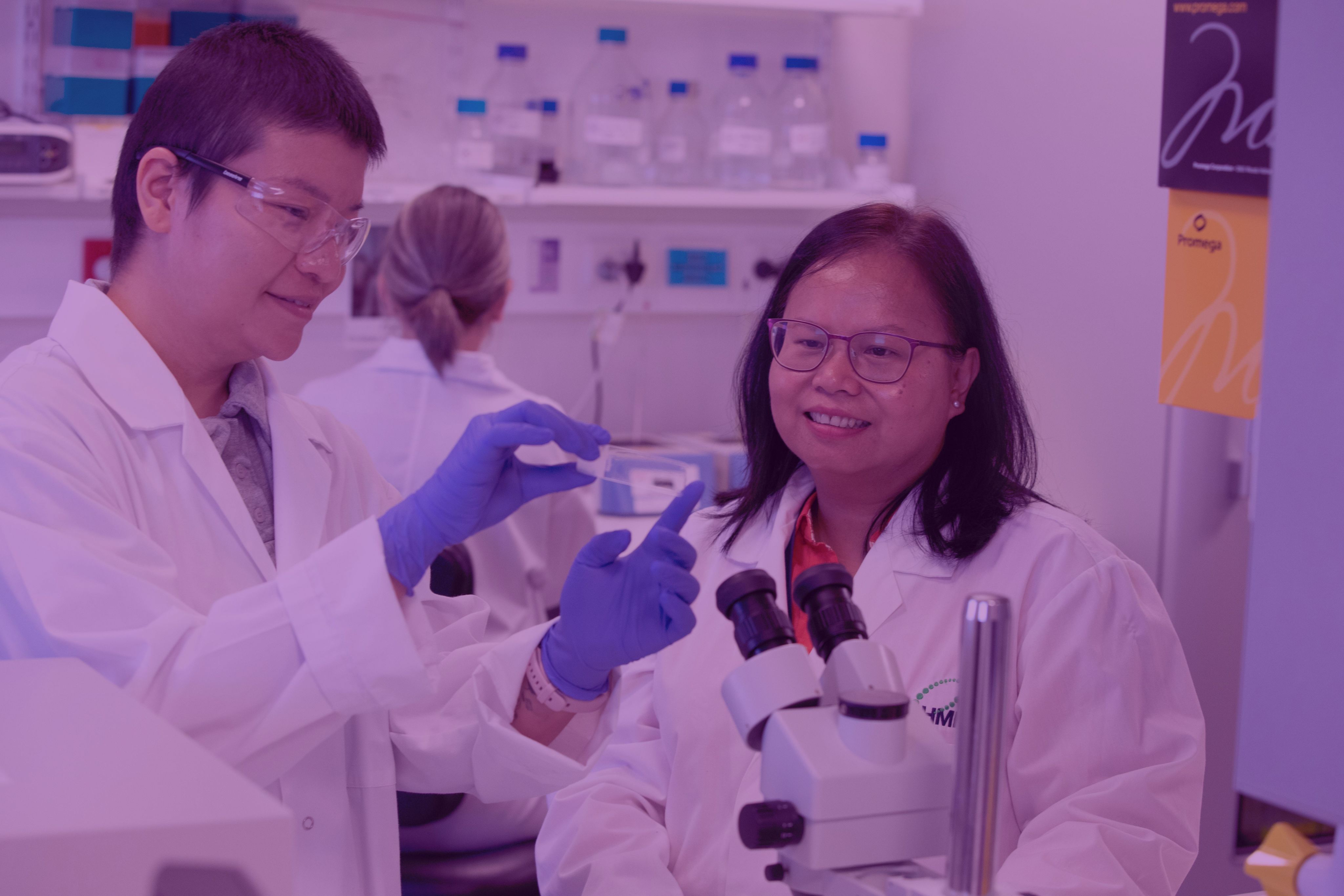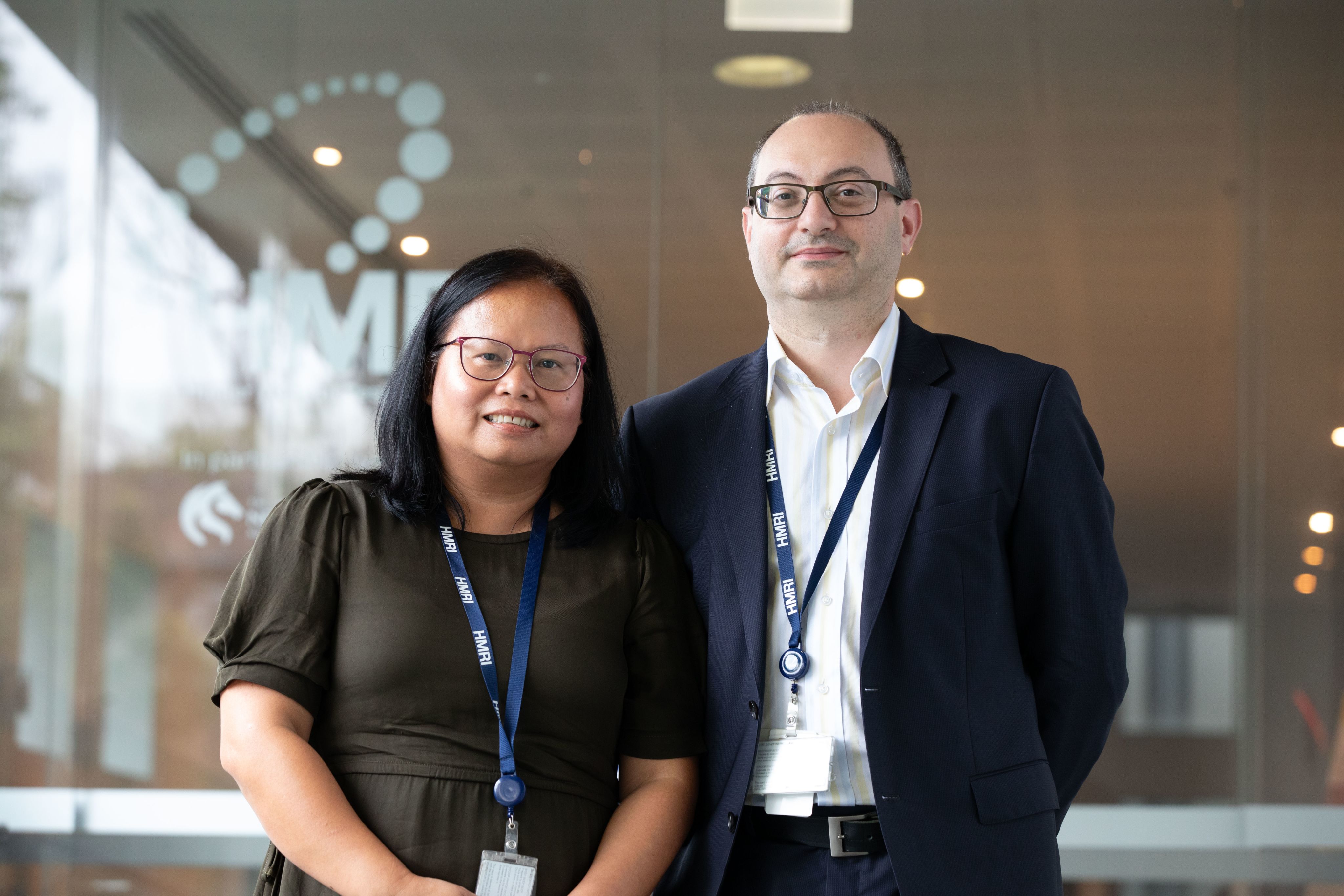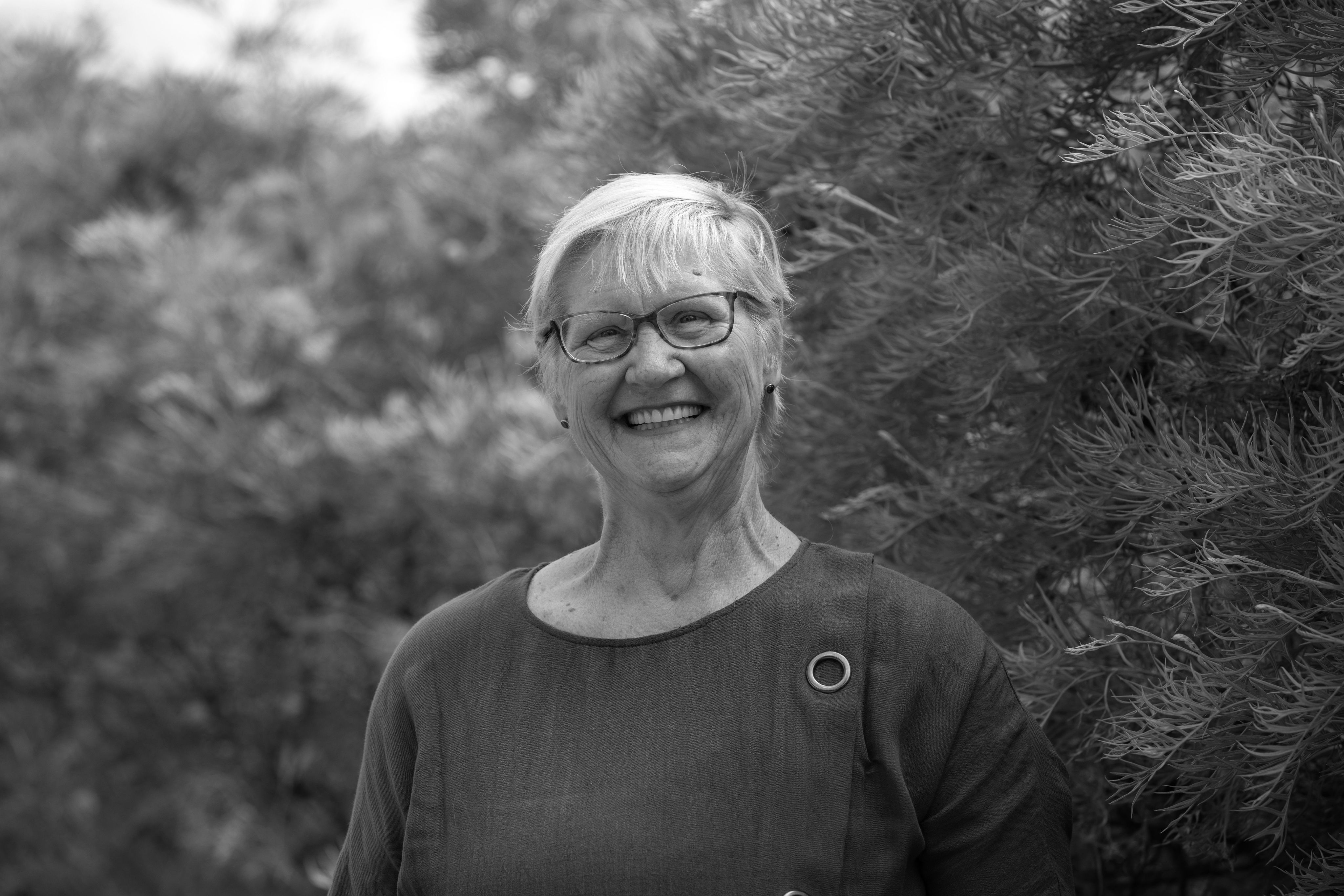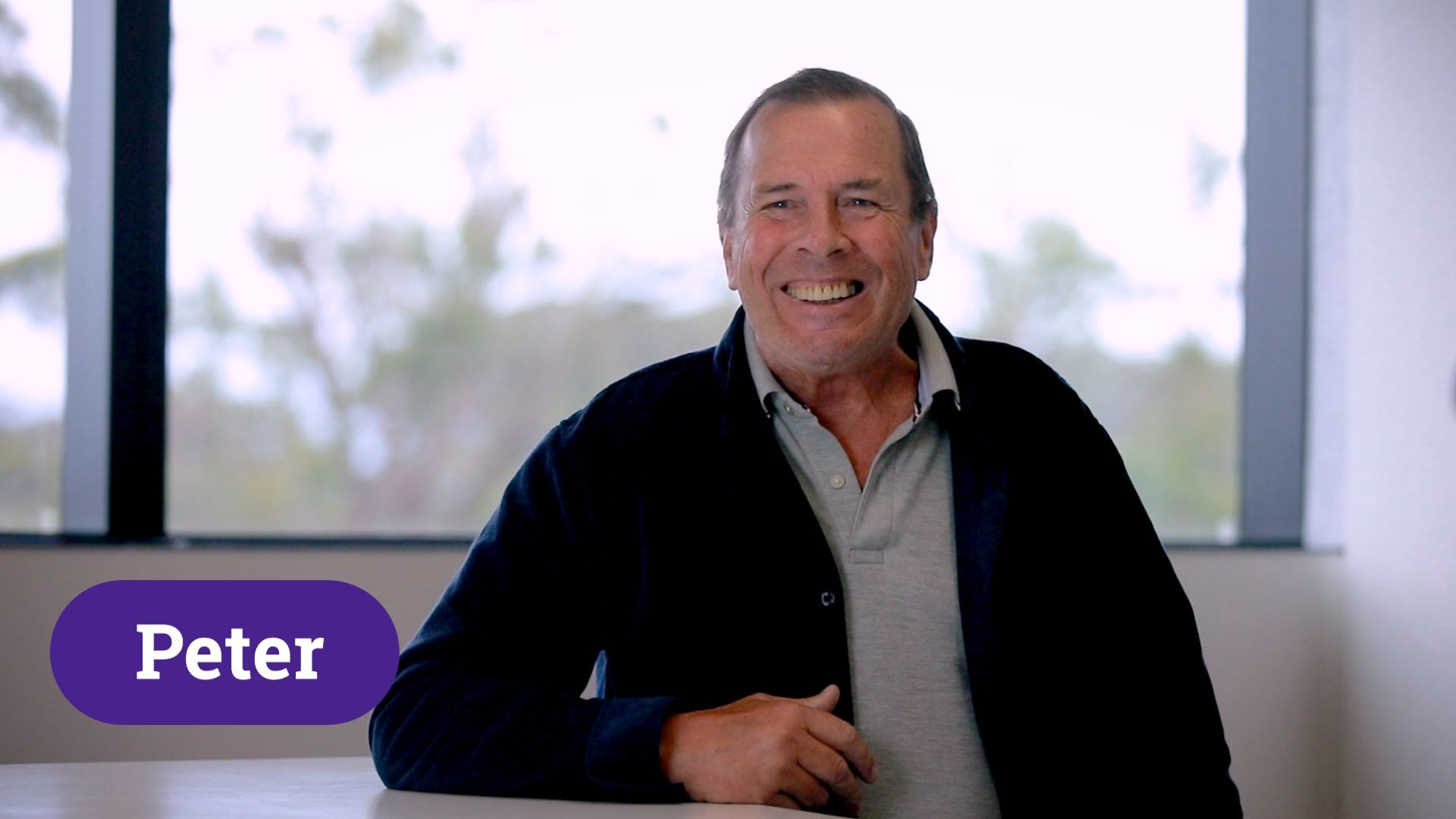Can we treat cancer
without breaking the heart?

More people than ever are living beyond their cancer prognosis thanks to breakthroughs in medical research.
But this extra time comes at a cost, with cancer treatments often having adverse impacts.
Heather Flanagan knows this only too well.
Having moved to Newcastle from Tamworth with her family at 11 years old, Heather has been a Novocastrian ever since.
Married with two two children, Heather's life was turned upside-down in 2019 when her husband lost his battle with cancer.
Heather was diagnosed with breast cancer the following year.
" I did my regular mammogram and got a call back pretty much within a couple of days.
It was only a matter of weeks before I started chemo."
" I did my regular mammogram and got a call back pretty much within a couple of days.
It was only a matter of weeks before I started chemo."
Heather is one of more than 160,000
Australians diagnosed with cancer each year.


While the number of cancer cases per year has almost doubled since 2000, rates of survivorship have improved significantly.
Thirty years ago, only half of people diagnosed with cancer lived beyond the five year mark.
Thanks to new treatment options, around 70% of people diagnosed with cancer today will survive to at least five years.
The downside of this is that the most commonly used and effective chemotherapy drugs damage the heart.
Heather was nearing the end of her chemotherapy treatment when she started feeling like something was wrong.
"As it got along I felt like I was getting sicker and sicker. I knew that I wasn't well," Heather says.
She was then diagnosed with heart failure brought on by the chemo drugs, forcing her to end treatment early and have a mastectomy.
This developed into kidney failure caused by the heart failure.
Once an avid gardener, cook and self-described "clean freak"
Heather could no longer manage to even take the bins out.
With one child living in Queensland and the the other in America, the impact of this sickness was crippling for Heather both physically and emotionally.
"I was so sick I couldn't even keep food down."
"I was just beside myself. I thought 'I'm going to have to sell the house'."
"I was so sick I couldn't even keep food down."
"I was just beside myself. I thought 'I'm going to have to sell the house'."
Researchers reducing
the impact of cancer treatment

Cardiologist, Professor Aaron Sverdlov, treated Heather’s heart failure.
“Most cancer patients are unaware of the potentially negative effects of cancer treatment on the heart," Aaron says.
In the past, the medical profession solely focused on beating cancer. Now researchers are considering the after-effects of chemo as so many people are surviving cancer.
This is the field of cardio-oncology.
Aaron and Professor Doan Ngo are the founders and co-directors of the
Newcastle Cardio-Oncology Centre of Excellence based at HMRI.
The pair completed their post-doctoral fellowships in America in 2017.
Upon returning to Australia, they saw a massive gap in the research for this emerging field.
That's when the centre started.
Theirs remains the largest cardio-oncology program in Australia, recognised as a
gold-tier Centre of Excellence by the International Cardio-Oncology Society.

One in three cancers survivors will die from heart disease within seven years of diagnosis.
As a practicing cardiologist, Professor Sverdlov sees patients every week whose hearts have been affected by their cancer treatment.
"I was diagnosed with breast cancer.
Then I got a contact to go and see Professor Aaron [Sverdlov]..."
"I subsequently did the chemotherapy and that was followed by a further diagnosis of myocarditis. Heart disease."
"I was a very active person.
To then have that taken away by the chemo and not even be able to walk down the driveway."


Aaron says Heather Flanagan is "one of the lucky ones" as she has now completely recovered from the cancer, as well as the associated heart failure.
But this heart failure, caused by chemo, could have been avoided altogether.
The Holy Grail is to have medications that can “both fight the cancer and protect the heart” Aaron says.
In 2021, Doan, who originally trained as a pharmacist, discovered that an existing drug could potentially be used to treat breast cancer without damaging the heart.
Rather than treating heart failure after it arises during cancer treatment, this type of drug may allow people like Heather to avoid the devastating impacts of heart failure altogether.
Doan describes this new direction in cancer treatment as "paradigm-changing".
For the significant discovery, Doan received the Game Changer Award from the Australian Cardiovascular Alliance.
The drug has now been approved for clinical trials - the next stage in possibly getting it used for regular cancer treatment.
This is the first of what is hoped to be many new or repurposed drugs that have the ability to fight cancer while simultaneously protecting the heart.
Doan describes this new direction in cancer treatment as "paradigm-changing".
For the significant discovery, Doan received the Game Changer Award from the Australian Cardiovascular Alliance.
The drug has now been approved for clinical trials - the next stage in possibly getting it used for regular cancer treatment.
It is the first of what is hoped to be many new or repurposed drugs that have the ability to fight cancer while simultaneously protecting the heart.
"At the end of the day, people are the most important thing," Heather says.
"So doing the trials and finding out what works and doesn't work, is extremely beneficial. We're talking about young parents that have children.
"To have their parent around for them to grow up and have that support."
"At the end of the day, people are the most important thing," Heather says.
"So doing the trials and finding out what works and doesn't work, is extremely beneficial. We're talking about young parents that have children.
"To have their parent around for them to grow up and have that support."
GET INVOLVED AT HMRI
Join us in making a difference
Participate in research
We have many projects across a wide range of health areas at HMRI that are looking for research study volunteers. Help our researchers make the next breakthrough today.
Partner with us
We're delivering research excellence and impact. Join us as a partner and you’ll be part of our health and medical research ecosystem, where we can work together to take healthy further.
Donate
Your gift today helps us find cures for tomorrow. With your support, our researchers can focus on transforming the health and wellbeing of people in our communities.
Advocate
Subscribe to our newsletter to advocate for HMRI. Stay up to date and informed on the latest medical research discoveries and upcoming events and opportunities.









